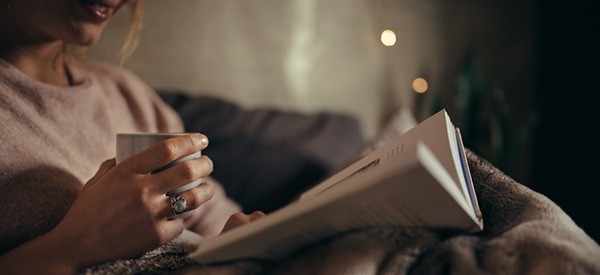
10 Teas You Should Avoid Drinking Before Bedtime
While we know that coffee should be avoided before bedtime, tea is a bit of a gray area.
Drinking certain types of herbal teas before bed, especially those formulated for relaxation, can actually help you sleep better, which is significant since so many people struggle with insomnia and other sleep disorders. However, this doesn’t mean that every tea will result in a refreshing slumber, and there are some that you should definitely avoid.
Black Tea
Black tea tends to be high in caffeine, which is why so-called ‘breakfast blends’ like English Breakfast and Irish Breakfast are made from Indian black teas like the Camellia sinensis Assamica variety. Other factors that contribute to higher caffeine content in black teas include:
The tea leaves in black tea blends tend to be more coarsely chopped
Black tea preparation tends to involve higher water temperatures and a longer steeping time
While a hearty cup of breakfast tea can energize you for the day ahead, it shouldn’t be part of your nighttime routine unless you really want to stay awake.
Shaded Green Tea
While green teas are generally lower in caffeine content than black ones, they’re not entirely caffeine-free. Some types of Japanese green tea, like Gyokuro and Kabusecha, are shaded for weeks before the leaves are harvested and then steamed to halt the oxidation process, resulting in higher caffeine levels.
If you’re a big fan of green tea and feel like having a cup before bed, go for one of the non-shaded varieties. By using simmering instead of hot water and limiting brewing time to no more than three minutes, you can further control caffeine levels.
White Tea
With only 15 to 30 mgs per 8 oz serving, this type of tea generally has the lowest amount of caffeine. Due to its minimal processing, white tea is also considered one of the most delicate tea types in terms of flavor and strength. However, if you’re sensitive to caffeine, you might want to save that cup of Silver Needle or White Peony for the morning!
Matcha Tea
Japan is known as the home of matcha, a powdered green tea made from stone-ground tea leaves. Several factors contribute to matcha’s caffeine content. To begin with, it is made up of whole tea leaves, rather than a diluted infusion like traditional tea. As a result, you’re getting more of the usual compounds found in tea, such as caffeine.
Matcha is also shaded for several weeks prior to harvest, increasing its caffeine content, so it’s not a tea you want to consume when you need a good night’s sleep.
Yerba Mate Tea
Yerba mate is a herbal tea made with the leaves and twigs of the Ilex paraguariensis plant, which is a species of holly plant. It’s especially common in Argentina and Chile and contains almost as much caffeine per cup as coffee. Although full of nourishing antioxidants (studies suggest that it may be even more beneficial than green tea in this regard), its high caffeine levels make it more of a morning than evening beverage.
Oolong Tea
This traditional Chinese tea offers a more diverse flavor, body, and complexity than most of the popular tea variants found in the United States, which is why it has such a dedicated fanbase. With 37 to 55 milligrams of caffeine per eight-ounce serving, it is between black tea and green tea in terms of caffeine intensity, so save it for mornings.
Pu-erh Tea
Aged teas such as Pu-erh are typically produced in China. Generally speaking, these teas possess a rich, earthy flavor and are high in caffeine. Pu-erh teas are often prepared with hot water and steeped for a long time, which increases their caffeine content. Pu-erh that has been fermented using a wet-pile method tends to contain more caffeine than raw pu-erh that has been fermented using traditional methods.
Purple Tea
Purple tea is produced from the leaves of the same camellia sinensis plant from which black, green, oolong, and other types of tea are produced. Unlike other types of tea, however, this new has purple leaves instead of green. Its caffeine level is less than green tea but slightly higher than white tea, so if you have a caffeine sensitivity, avoid it at bedtime.
Parsley Tea
Parsley (Petroselinum crispum) tea has long been a home remedy for water retention. Several studies have shown that parsley has a diuretic effect on animals because it increases urine production. Parsley also contains flavonoids, compounds that bind to adenosine A1 receptors, as demonstrated in another study.
The binding decreases the effects of adenosine, increasing urine production, so you might find your sleep disrupted by frequent trips to the toilet.
Dandelion Tea
Dandelion (Taraxacum) is another herb used to increase urine production and treat water retention.
It works as a natural diuretic because it is rich in potassium, a type of mineral that promotes urine excretion in the kidneys.
Like parsley tea, it can disrupt your sleep due to the increased need to urinate.
So Which Teas Should You Drink Before Bedtime?
Although you should avoid drinking these 10 varieties before bedtime, you don’t have to forgo all teas entirely. Herbal teas have been used as natural sleep remedies for centuries because they can combat insomnia, stress, and anxiety. Some of them have even been studied for their sleep-promoting properties. They include:
- Valerian Tea: Valerian is a flowering plant that is used as a herbal supplement. Its roots are dried and made into valerian tea, which is sometimes used as a natural sleep aid.
- Lavender Tea: To make lavender tea, the flower buds are brewed with water. Lavender is frequently enjoyed as a soothing bedtime tea, but some research suggests that it may also promote relaxation and enhance sleep quality.
- Chamomile Tea: Chamomile tea is often used to promote sleep thanks to its sedative effects. It contains an antioxidant called apigenin, which can induce muscle relaxation and sleep.
- Magnolia Tea: A natural sleep aid, magnolia tea is made from the dried bark, buds, and stems of the magnolia plant. Honokiol and magnolol, two compounds in the plant, have sedative properties.
According to this study, a cup of tea before bed can create good sleep habits because the brain recognizes it as a relaxing interlude before sleep. When you choose a quality herbal option, it can contribute to a good night’s rest.
Formulated to help you fall asleep faster and stay asleep longer, this Sleep Blend Tincture is a convenient, easy-to-use blend of hops, valerian, German chamomile, passionflower, and magnesium glycinate. Visit the apothecary today to read about these outstanding herbs for promoting deep, rejuvenating sleep.
You may also like:
 The 6 Best Bedtime Teas To Help You Sleep
The 6 Best Bedtime Teas To Help You Sleep
1 Cup Before Bed Shrinks Belly Fat All Night (Video)
The Anti-Inflammatory Blue Tea

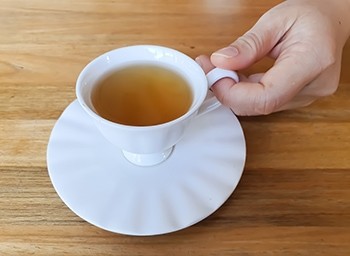
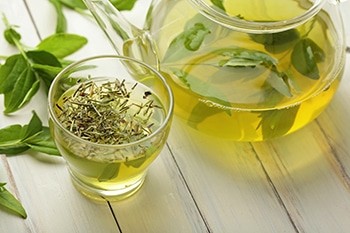
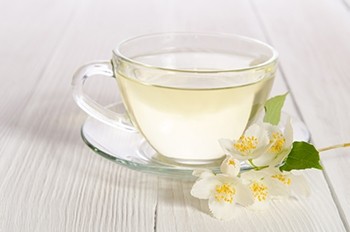
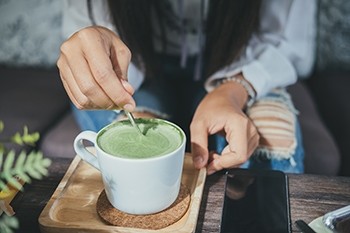
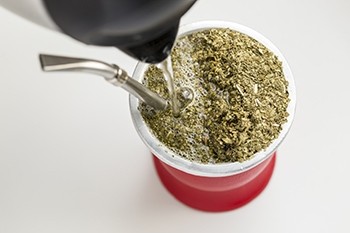
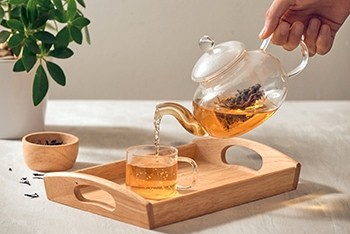
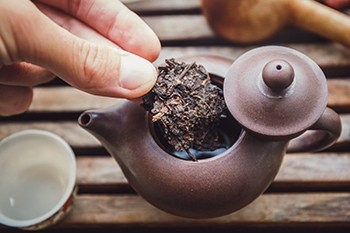
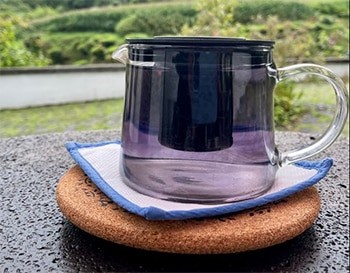
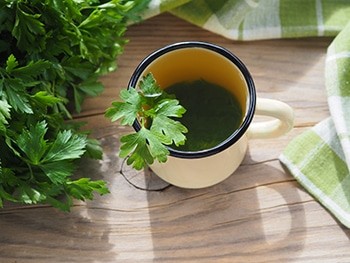
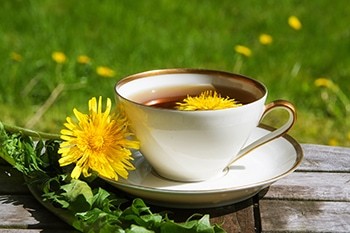
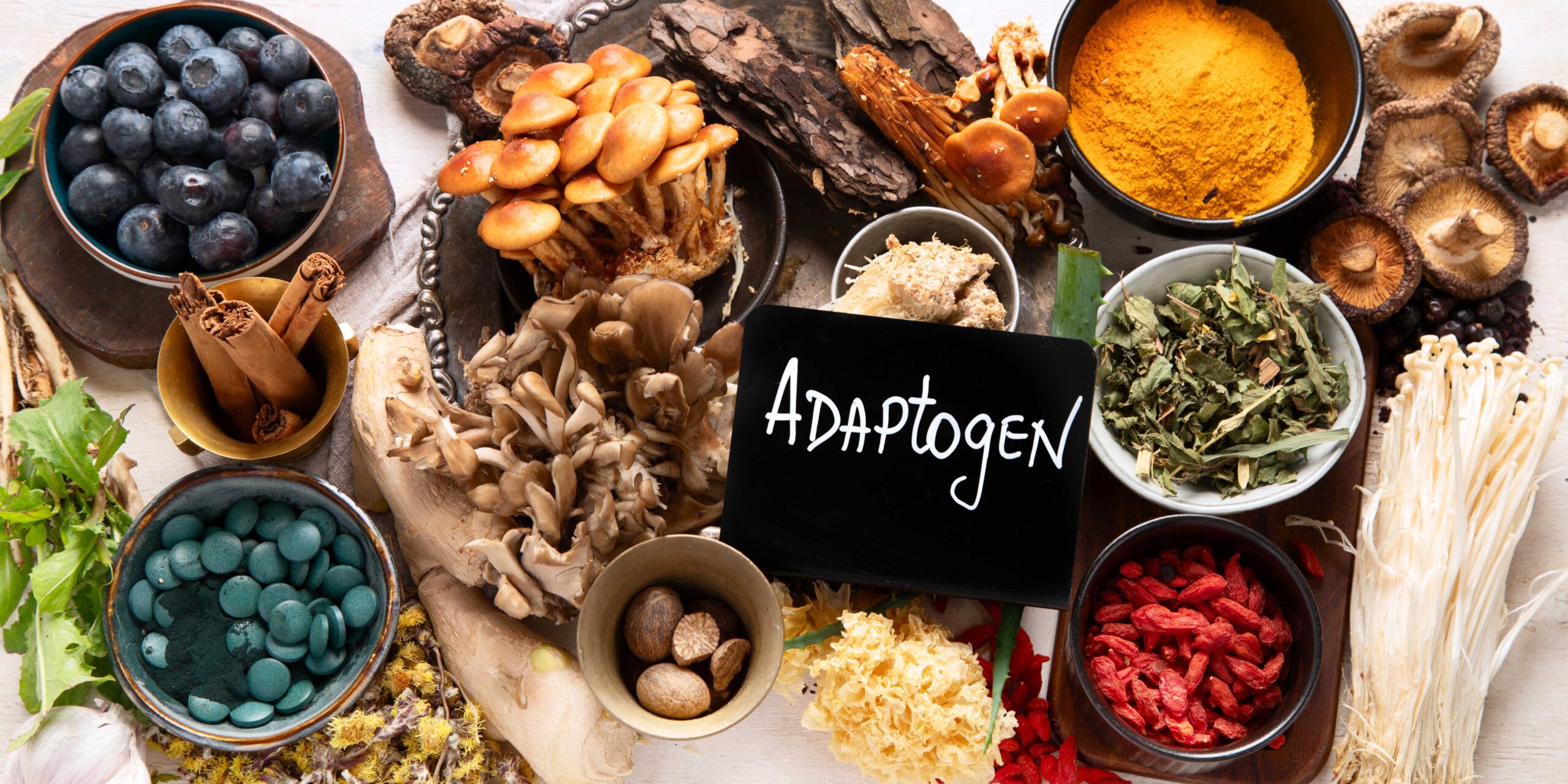
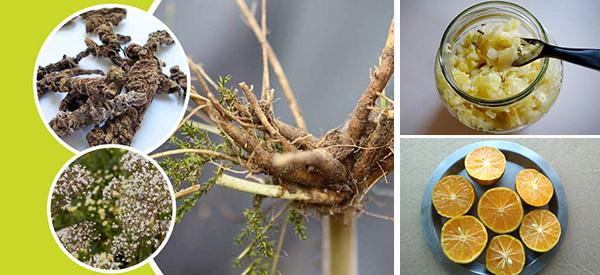
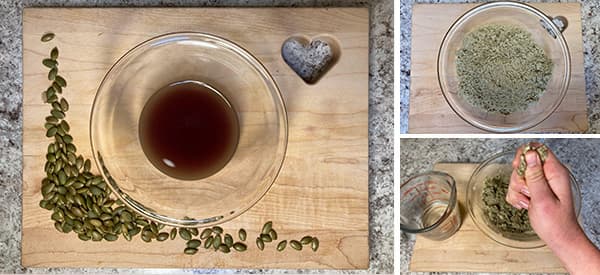
I would also add Moringa flower tea. I found this the hard way, was wired till two. It is good for a rev/pick up but only in the AM.
I have a rash all over my body, and it itches. This happened the day of Thanksgiving 2021. I have been seeing my doctor and a dermatologist. I also had all kinds of tests, and I lost 33 pounds because of it. I have become very weak, because the itching makes me weak. In my report it says, that I have a high number of eosinophils, which is likely due to the process that is causing a rash, often an allergy. They think that whatever is causing the rash and the weight loss is the reason of the elevated TSH. Do you have any idea how to get rid of this?
I hope your doctor is Functional Medicine. Complete thyroid testing is essential including antibodies and treatment for the underactive thyroid. The rash may be toxic and a hair analysis may help as well as the OAT test and allergy testing. A complete history is important. Hope this helps.
Please look or follow-up Eosinophils.
The person you must consult is
An allergist, who treats asthma and allergies. An immunologist, who treats problems with the immune system, including allergies. A pulmonologist, who treats lung diseases.22 Jan 2022
I’m in Melbourne Australia and just saw your message
lea.gamble5@gmail.com
I’m wishing you well 💖
Margret Dill. Unfortunately your body has 85% of ENERGY AND PSYCHIC BLOCKS.
Blocks do not allow organs, cells, muscles to receive the required amount of subtle energy and interact with chemical elements. This delays the full transformation of energies from subtle to material, which is necessary for the birth of new cells and for the vital activity of the entire organismic system. If there are blocks in the body, then the taken vitamins, medications, etc. do not reach diseased organs and cells in order to treat them. Cleansing from energy and psychic blocks will make the flow of Chi more even, which will allow the internal organs to function normally and for a long time. This book will help you to get rid of many health problems including all energy blocks. https://liveinlight.space/?page_id=122
Patients my dear, I too had elevated eosinophils level and allergy with rinitis, itchy eyes and nose +sneezing to a point when I sneeze my pee would come out. Dr. would give me anti-histamines which it relieve it for 12 hrs. Coming back with a revenge. I do research on herbs and found taking tea of – fenugreek, black seeds (kalongi), thyme and bay leaves relieved the symptoms so took 3 cps a day. But the magic here is not attacking the histamine levels it’s to get rid of the cause, that’s keeping in the toxicity of the histamines. Must do a diet to rid it. Avoiding alcohol, lactose ( milk) no cheese, yogurt, no cans preserved food nor vegetables, no gluten, wheat,spinach, NO SUGAR, coffee, or other caffeine beverages, meats of any animals, fish .
Take vitamins C, B-5, B-6, B-12, guava, fresh vegetables, etc. Try it for at least 30 days and introduce them each week one or 2 items , or till you feel better. Good luck and many blessings.
The caffeine content in green tea is higher because the whole leaf is used but with the higher caffeine content you also get a higher theanine content which balances the caffeine sho the energizing effects aren’t the same as what you’d get in let’s say an espresso shot
I would also add Hibiscus Tea to this list for the same reasons of the Dandelion and its diuretic effects. Learned this the hard way.
Have used Hibiscus tea for 5 years and never had an increase in nighttime urination. The one thing it has done and continues to do is drop my BP to 125 over 65 and maintain it there. Even if I had to urinate more at night, a BP this normal and consistent without drugs would be worth it!
A calming tea I enjoy before bedtime is Lemon Balm tea, if you don’t mind my shairing 🙂
O hi